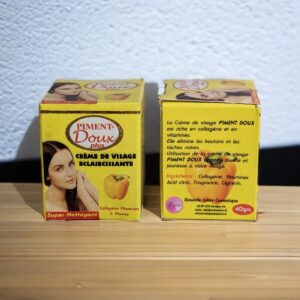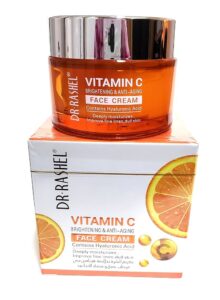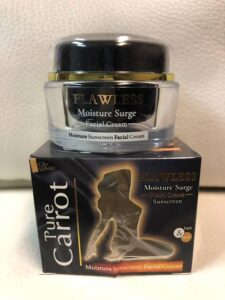
The Face can be hydrated and kept hydrated with the help of coconut oil. It might also possess antimicrobial qualities. Also, coconut oil might aid in lowering inflammation and accelerating the healing of wounds.
Coconut oil is being investigated by researchers as a potential topical therapy for persistent skin irritation. Still being researched, though, are the advantages of using coconut oil in the diet.
Applying coconut oil to your face is not recommended if you have oily face/skin
Some people apply coconut oil directly to the skin as a facial cleanser or moisturizer.
This article examines the various forms, applications, and potential dermatological advantages of coconut oil.
Benefits of coconut oil for the skin:

Coconut oil may help moisturize dry skin.
There are several advantages to applying coconut oil to the skin, some of them are as follows:
- Moisturizing dry skin, including in people with conditions such as eczema
- Reducing inflammation, which may result from UVB rays
- Promoting wound healing
- Antibacterial, antifungal, and antiviral properties
These advantages are supported by a few early studies. To verify them, though, more research is required.
According to one study, rashes like atopic dermatitis may be prevented and treated using coconut oil. According to a different study, coconut oil extract can lessen UVB-induced skin irritation and enhance the skin’s barrier function.
Speaking of which, studies on coconut oil have revealed that the oil may possess antimicrobial qualities even when applied topically. Studies on cells suggest potential antiviral and antifungal properties as well. Which makes it very suitable for the face.
Scientists believe that coconut oil also helps improve the skin barriers for infants with a low birth weight, which could help protect them from health concerns.
Further research is needed to confirm the possibility that virgin coconut oil has a positive influence on genes that contribute to inflammation.
The specific reason why coconut oil is good for the skin is still unknown to scientists, however it may be because of the fatty acids and polyphenols it contains. Additionally, it has antioxidants that, when applied topically, can both protect and enhance the appearance of the skin.
While there are currently few recognized hazards, research into the advantages of using coconut oil to the skin is still ongoing.
Types of coconut oil
There are several varieties of coconut oil, and people categorize them based on how they are made.
Virgin and refined coconut oils are the two primary varieties. Since virgin coconut oil is extracted from fresh coconuts, its antioxidant and polyphenol content may be higher. Dried coconut meat is used to make refined coconut oil.
Additional processing stages, such as machine pressing, may be required for refined coconut oil in order to extract the oil. Certain makers might apply bleaching, deodorizing, and chemical solvents.
The method of extraction affects the kind of coconut oil as well. Cold-pressed coconut oil is the name given by manufacturers to the oil that is extracted without the use of heat. This kind might have more nutrients.
Expeller-pressed coconut oil is produced when fresh coconut meat is extracted using steam or heat to press the oil out of it.
In general, the healthiest varieties of coconut oil are those that have had the least processing, like cold-pressed virgin coconut oil.
Manufacturers may hydrogenate coconut oil, which is to say that they treat it with hydrogen, to assist it stay solid at warm temperatures. The end product contains a lot of synthetic trans fats. Eating them raises the risk of heart disease and stroke, according to the American Heart Association (AHA). Nevertheless, it appears that applying coconut oil to the skin is exempt from this warning.
Any kind of coconut oil can be used topically to the skin.
How To Use Coconut Oil

Using coconut oil as a skin moisturizer is one of its most well-known applications.
It is normal to apply a tiny bit of coconut oil directly to the skin or hair. Coconut oil usually absorbs fast into the skin.
Before applying coconut oil to larger regions of the body, someone using it for the first time should test it on a smaller portion of their body. For those with oily or sensitive skin, doing this is extremely crucial as it can help avert any possible negative responses.
One can use shampoo to remove the coconut oil from their hair after leaving it in for the desired amount of time. Find out more about applying coconut oil to your hair.
Also, people can add coconut oil in their diets, however studies on the advantages of eating coconut is limited.
This may be beneficial against acne, but it’s not recommended for people who have very oily skin.
Coconut oil is highly comedogenic, which means it can clog pores. Consequently, it may actually make acne worse for some people.
Conclusion
In general, answering the question if Coconut oil good for face, It’s Yes. Coconut oil may improve the skin in a variety of ways. It may have antiviral, antibacterial, and anti-inflammatory qualities, according to research. For dry skin, coconut oil is also incredibly hydrating.
A person can apply coconut oil directly to the skin. It’s crucial to remember that coconut oil cannot cure medical issues. Prior to using coconut oil as a home cure, you need should consult their physician.








